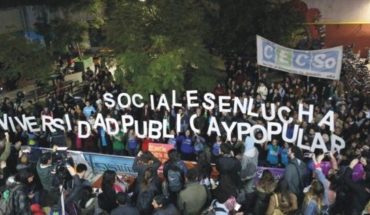2021 has been a year where Chileans have had to go to the polls on different occasions and migrants who have been in the country for at least five years on a regular basis through the residence or Definitive Permanence visa are also entitled to vote. The migration crisis in the north of the country has been one of the relevant issues throughout the year both socially and politically. The burning of migrants’ belongings and the demonstrations against migration in Iquique marked a relevant precedent as well as measures taken by the Government of Sebastián Piñera, including the “Return Plan” that included tickets for Haitians who wished to return to their country of origin.
Within the presidential race has also been an issue that has set the tone, on the one hand, the candidate of the Christian Social Front, José Antonio Kast suggested making “ditches” at the borders to stop the migration crisis in the north of the country while, from Apruebo Dignidad, Gabriel Boric proposes to move towards a “safe migration policy” and ratify the Global Compact for Safe Migration, Orderly and Regular, known as the Marrakesh Pact.
Within this same line is a space it is relevant to analyze how immigrants are voting. From the organization Infomigra they assure that “According to the data of the Electoral Service obtained through the Transparency Law by the SJM Chile, as of November 21, the immigrant electoral roll was 449,924 people, being 3% of the register in the national territory.”
Additionally, regarding the effective participation of the plebiscite of October 25, 2020, according to data from servel, 46.10% of the electoral roll of the Venezuelan community in the country participated in the 2020 plebiscite. These were followed by the Peruvian community (20.8%) and Haitian (11.2%), which made up the three communities with the highest participation for 2020.
Clive Echague, psychologist and Master in Social Psychology and coordinator of the Immigrant Care Unit of the Center for Psychosocial Intervention and Counseling (CIAP) of the Catholic University of the North, maintains like Infomigra that the figures of the plebiscite of October 25, 2020 are the most recent and that it is relevant that Venezuelan immigrants were the people of the nationality who voted the most.
“It is very striking that it is the Venezuelan residents who lead the participation rates because they are a considerably lower number than the other voters and in the elections for the plebiscite Peruvians also had enough participation 20.8%, Haitians 11.2%, then we can also see how in that sense there is high participation but that does not translate into significant numbers, rather it is those who lead the participation despite the fact that there are other people who come from other nationalities who have a greater number of voters but not a greater number of participation, “says the psychologist.
The migrant vote
Among the communities that vote are mostly immigrant groups that illustrate the migratory waves that have reached Chile the five countries of origin with the largest number of inhabitants entitled to vote are: Peru (157,003), Colombia (56,489), Bolivia (50,766), Argentina (30,449) and Ecuador (17,990).
Clive Echague, questions Chile about the little importance that has been given to the migrant vote. “I think there are certain sectors of politics that have thought a little more from the foreign policy they do as with the issue of Venezuela or Cuba for example but immigrants are not so visible in terms of a subject that is also important to consider, in countries like the United States the migrant vote makes a difference in certain national trends and I think that in this country we could also enter into that detail,” explains Echague.
He also adds that “this accounts for the little insertion that other political groups have in the migrant populations and as well as political participation is not stimulated in those terms of going to vote to influence national politics and that is also a challenge for the different groups that exist and for politics.”
Another relevant point to take into account is what factors make an immigrant person vote in the elections, from Infomigra they explain that the preferences and intentionality of voting of immigrants is determined by multiple factors: from the yue stories, which can be to sympathize or not with certain sectors or simply consider themselves as apolitical or depoliticized, to transformationThey can live these positions as a result of their travels and crossings along the border, “which finally faces a new political context with a new history, groups and political parties with the arrival in their country of destination.”
“Even the immigrant person will no longer only consider issues such as the economy and citizen security, but could also consider issues such as the country’s immigration policy proposals, which, together with their level of inclusion, knowledge of the country and closeness to certain groups can influence their decision to participate or not, either electorally or politically directly by entering a political party,” raise from Infomigra.
Migration and the next government
Finally, in relation to the migration policies for the next government that is elected this Sunday, December 19, the coordinator of the Immigrant Care Unit of the CIAP states that “in a next government this paradigm that links migration and public security should change, we must think about it in terms of social security, the contribution that migrants make to the country; from international protection to the rights of workers and should in that regard facilitate work permits; respect certain international agreements, especially international law, and in that sense I believe that they should also subscribe to the migration pact to the Marrakesh pact and I also believe that the government should also take an initiative to capitalize on the talent of migrants who are arriving in the country.”
Infomigra for its part expresses that “we believe that the new president has the mission of responding to the humanitarian crisis that exists in our borders from a perspective of Human Rights and at the level of State, not only of government of the day and of short term; it must move from a security perspective to a humane and democratic one; it is necessary to implement regional, coordinated and long-term responses that overcome the political instrumentalization that the migratory reality of our country has suffered.”
Political experiences in their countries of origin: the reasons that cross the migrant vote
December 19, 2021 |





